Upstairs in a candlelit sake bar in central Baltimore, it is late summer. Students from nearby MICA and Johns Hopkins flow in with linen shirts and sundresses, taking a narrow staircase up from the humidity rising out of the Mid-Atlantic.
Briana Marela is setting up a series of conductive, copper-colored wired flowers and tests the sound through a MAX/MSP patch ahead of her performance. By this point in July, she's already driven from Oakland, California, to the East Coast, performing live most nights for eight weeks straight.
Over the next thirty minutes, in a plaid skirt and a hand-built reactive bodysuit driving shimmering arpeggios, Briana commands the room with a quiet confidence—as both singer and technologist. Arriving mid-set, you're met not by someone tucked behind a laptop, but by a woman moving stealthily through the audience with a headset mic, in sharp contrast to the usual table of stationary synths and seated musicians.
Somehow still fresh, without a trace of fatigue, she delivers a set that feels both technically rigorous with a dash of experimental pop—like Laurie Anderson and an early 2000s Asthmatic Kitty roster have collided. A Mills College graduate, Briana is on the road during a sanctioned sabbatical from her day job at Buchla, where she solders reissues of the groundbreaking 1970s synthesizer.
If my age shows, I am reminded of the main character in Flashdance who splits time between welding and ballet. If it keeps showing—I found myself sitting with Briana and her partner in a diner serving Elvis-themed pancakes and mostly wanting to ask: Are you tired?
Her answer, more or less: she's not. Briana's DIY prowess booked herself into thirty dates across the U.S., driving most days between three and six hours, relying on friends and generous strangers for places to crash.
Gas and meals are covered with a crate of cassettes purchased back from experimental label AKP Recordings from her June release My Inner Rest (she estimates she sold fifty tapes while touring). The merch table consists of hand-drawn shirts with flowers, small ceramics, and CDs that keep her fed and fueled.

This morning, Briana passes on coffee in favor of a hot chocolate, which arrives from the kitchen with rainbow sprinkles. The drink's childlike presentation sparks a conversation about a past life as a member of a children's band.
Carolyn Zaldivar Snow: So, where did you grow up? What's your family like?
Briana Marela Lizárraga: I grew up in North Seattle. My dad immigrated to the U.S. from Peru in the seventies, and then he met my mom in the eighties. They had me. I think the most beautiful thing was that they could see when I was little that I was drawn to music. I was always moving, dancing, singing. So my mom put me in this children's singing group when I was really little, called Sunshine Generation. It was a little hippie, but also a little bit pageant-like, almost. I loved it. I got obsessed with performing at an early age, and I think that kind of guided my whole life, being in that group.
Carolyn: When do you get your first piece of electronic gear? Was it a synth? Was it software?
Briana: I didn't have a way to record myself at home, so my dad bought me a microcassette recorder. I remember you could change the speed on it. I had this inclination, like, “Oh, you can change things."
Carolyn: Sounds like a first experimental wave. You're at Buchla as a day job—how did you end up there? Is it the Mills College pipeline?
Briana: One of the engineers, Joel Davel—I ran into him at a party. I was talking about looking for work, and he says, "Hey, listen, we need someone to do assembly and testing and soldering." I was like—I can do all those things. Working at Buchla can feel chaotic and in kind of a disarray, like any creative world. My own creative life is a little messy and disorganized—but you have your eyes on the finish line and you're like "this is going to get done." The parts are scattered everywhere, but you find them and piece them together. At the time they hired me, they had a huge order of Buchla Easels, so I was building cases and testing them, getting them wired up.
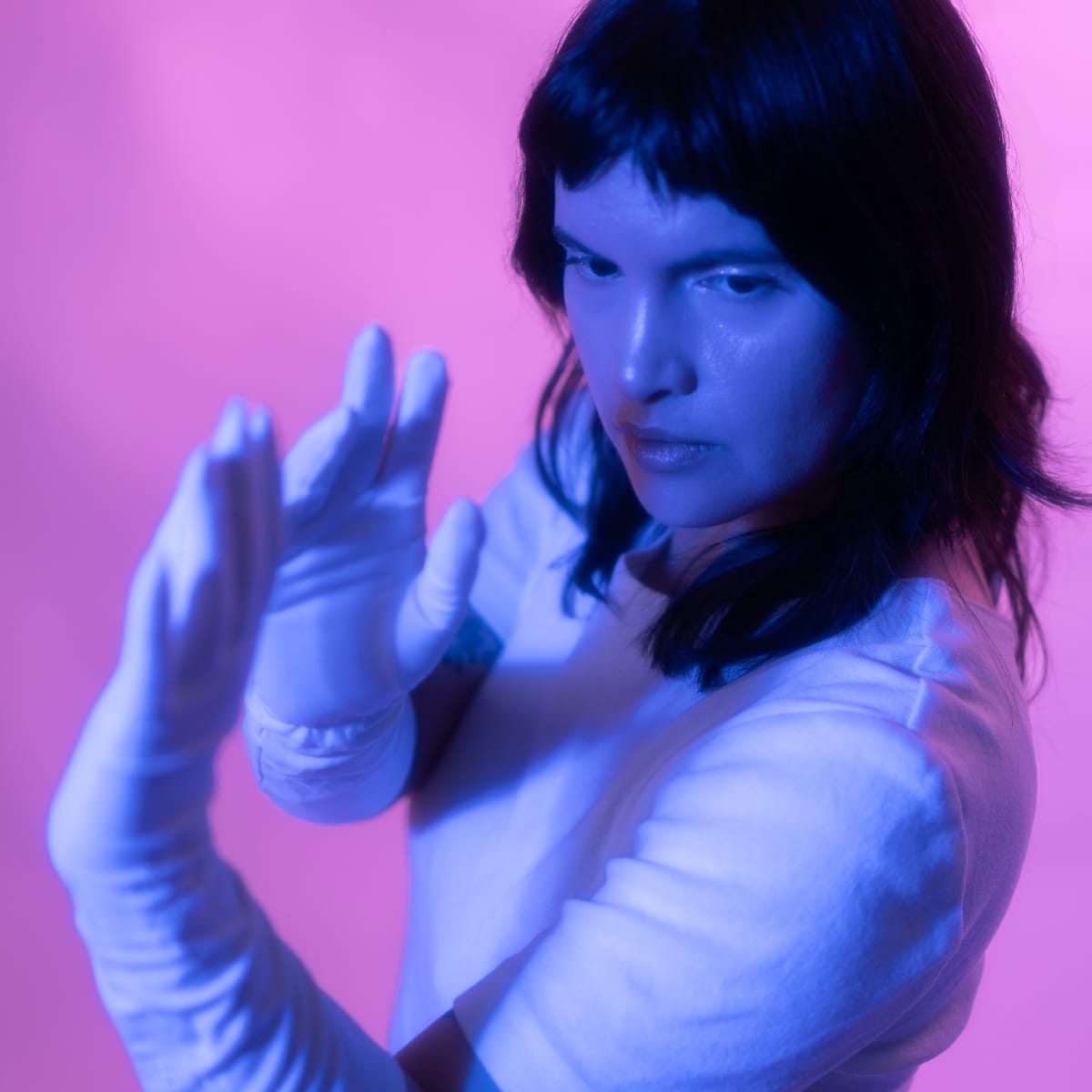
Carolyn: You use hardware and software synthesis to manipulate your voice and build out your reactive clothing for your performances. I’d like to know more about that.
Briana: I love singing, and my voice has been my most reliable instrument. I'm not very good at playing other instruments live, although I've tried playing over the years. My voice has felt like my main instrument and also the instrument that I choose to compose with. I compose music that usually starts with melody. Some of it's been more straightforward—like lyrical voice. I have a lot of fun using it texturally too—sampling, live processing, recording—kind of scrubbing through samples of my voice. I'm always striving to find new ways to play with my voice live and in recording.
Carolyn: Your performance reminded me a lot of Laurie Anderson—especially with your jacket that is responding to your movements and manipulating the piece.
Briana: I love Laurie's work, I think just being at Mills was an opportunity to go deeper into Laurie's practice and some of her early work that she was doing with violin. I was like, "Wow, she's a genius." I kind of stumbled on the eighties performance of Home of the Brave. I don't know if you've seen it before—my memory of it, at least right now, it starts off with her wearing this costume and she's hitting herself, hitting these contact mic triggers and triggering the sound. She projects her voice pitched down, and her way of moving and being theatrical is just so engaging. It is so tied to the voice, narrative, and lyrics. So kind of in this ethereal, strange way, resonated within me so hard. I think for a lot of my time being a musician, I didn't really think about being a performer. I think I was just so obsessed with making everything sound good—but then I was shy. It took me a really long time to step out of that and wanting to hide behind my gear. I wanted to engage the audience and embody what it means to be a good performer. Part of that became me not playing traditional instruments. Playing these gestural and improvisational instruments I designed is so freeing, and I can be myself on stage.
Carolyn: So this new record—I had a listen to your earlier work and it feels drum-focused and more like early 2000s electronic music. Purity Ring comes to mind, maybe Cryptacize. But My Inner Rest is experimental.
Briana: I had been putting out indie pop albums with a larger label. I got a little soured on the music industry. It never felt like my scene or place, and it always felt that so much of it was tied to commercial branding. I hate having to make a bunch of social media posts or feeling like I have to maintain some level of flawlessness. I think that's what attracted me to experimental music, or maybe it's what attracts other people. There's a level of risk-taking.
Carolyn: I had a long listen with My Inner Rest. It sounds like someone trying to patch all of us as humans back together—or maybe yourself?
Briana: I had gotten dropped from the earlier label for being a commercial failure. It just felt like I needed to do what my heart really wants to do. I started grad school feeling like a failure. I think a lot of this album was kind of coming into the realization that I didn't really love myself, but I was so good at loving other people. I was so hard on myself, and if I did work on something, I would tear it apart. I turned thirty, and I think part of maturing is realizing you have to love yourself. It sounds and feels cheesy, probably, but there's something beautiful about believing in yourself or seeing yourself as powerful. I started exploring that with music. How do you work through feelings of inadequacy? I would focus on these affirmative phrases and repeat them—singing something like "I am the brightest star."
Carolyn: What is it like touring such personal material intensely, night after night, with all the logistics of a DIY tour? There's a noticeable tenacity here.
Briana: I love touring. To play songs for people every night just feels like the best job in the world. I'd love to be on tour at least three months of the year. I love traveling. I love meeting new people. I love seeing old friends, I like reconnecting and getting glimpses into their lives. It just feels like a privilege, because I know how hard it is to set up shows and make something happen and to convince people to come out and see an artist they have never heard before.
Carolyn: I kind of appreciated the crew that came in late to the show last night. I bet they didn't expect to be greeted by a performer moving through the room. It seldom happens that the performer goes into the audience so willingly.
Briana: I love having the wireless mic. It's been so freeing. As you know, playing electronic music live is tethered by your tables and wires, and the electricity needs to be concentrated and stationary somewhere. But this is a more human element. Like, I can have this symbiotic relationship with the audience being free. Just being—untethered.
Carolyn: Untethered. I like that.
Briana will tour three more dates of My Inner Rest this week, closer to home:
- September 12: San Francisco, CA at Gray Area Fest 2025 - To The Maxx with Ash Fure and Onyx Ashanti
- September 14: Olympia, WA at The Crypt for ISM Fest
- September 19: Santa Cruz, CA at Indexical with Luke Wyland
Check out more like this:
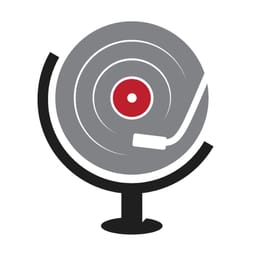 The TonearmGarrett Schumann
The TonearmGarrett Schumann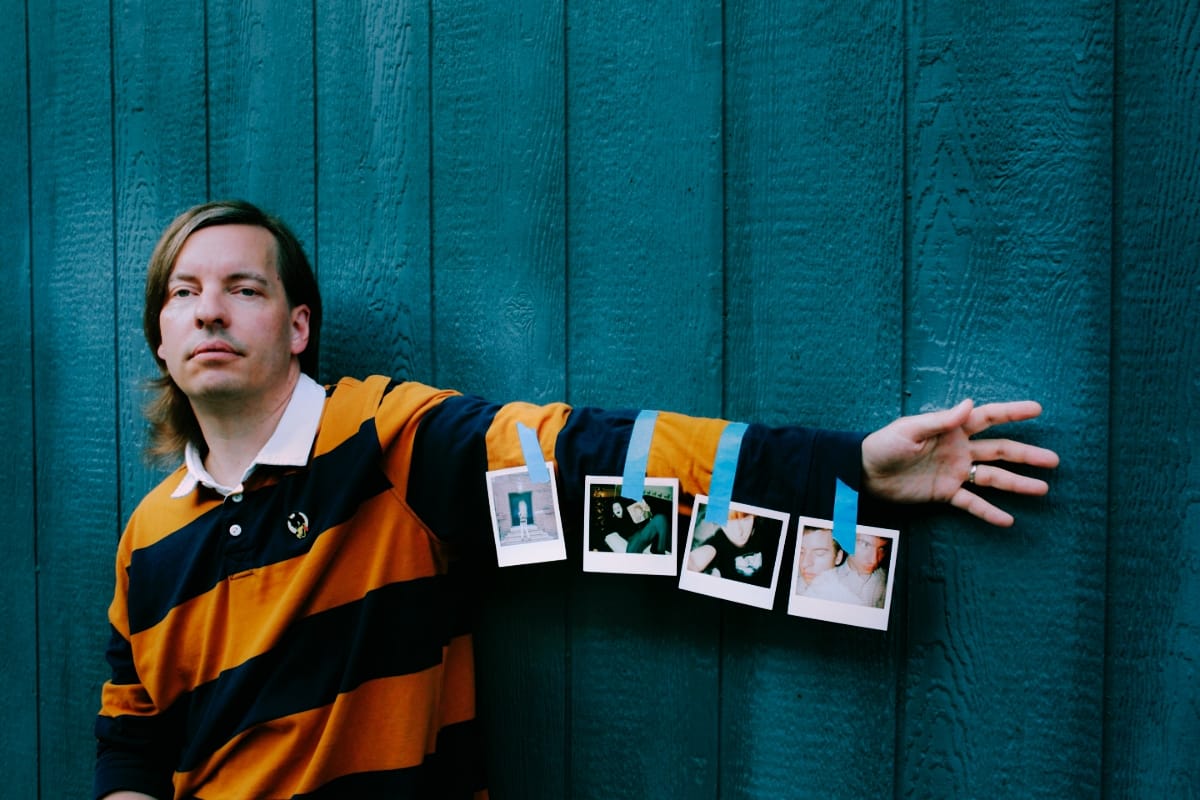
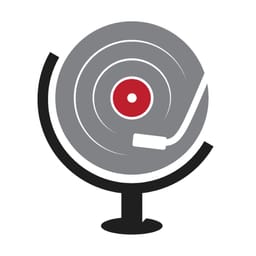 The TonearmLawrence Peryer
The TonearmLawrence Peryer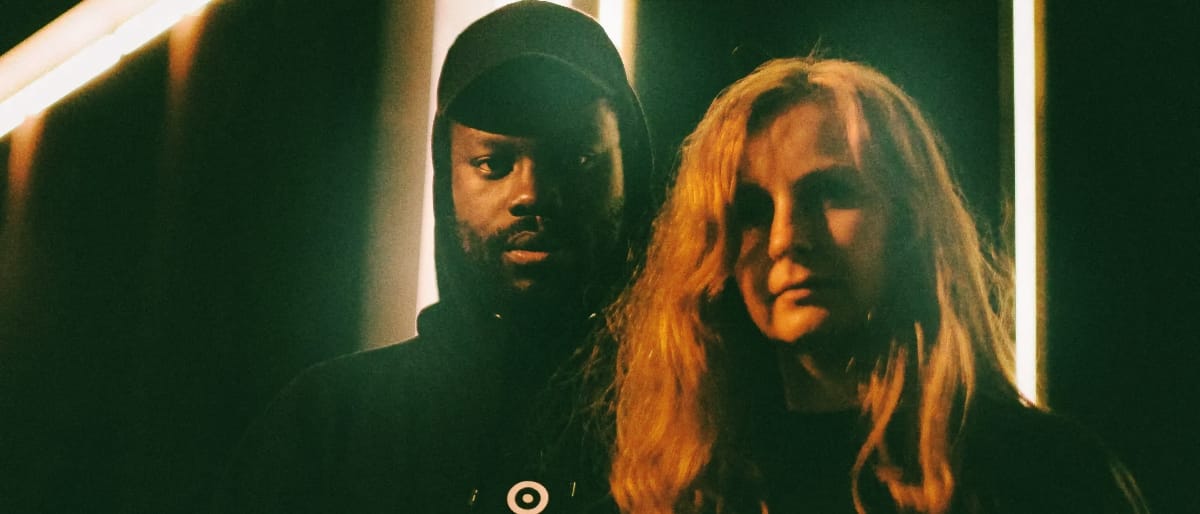


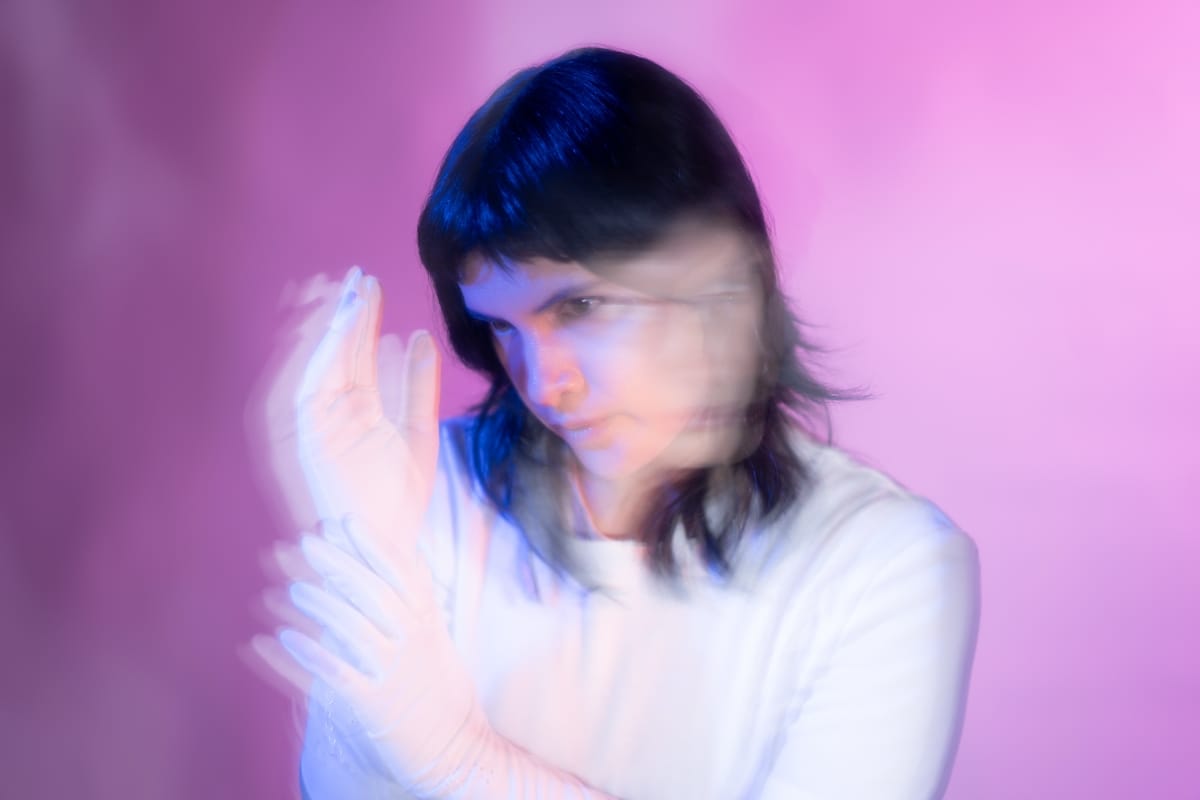
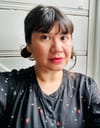
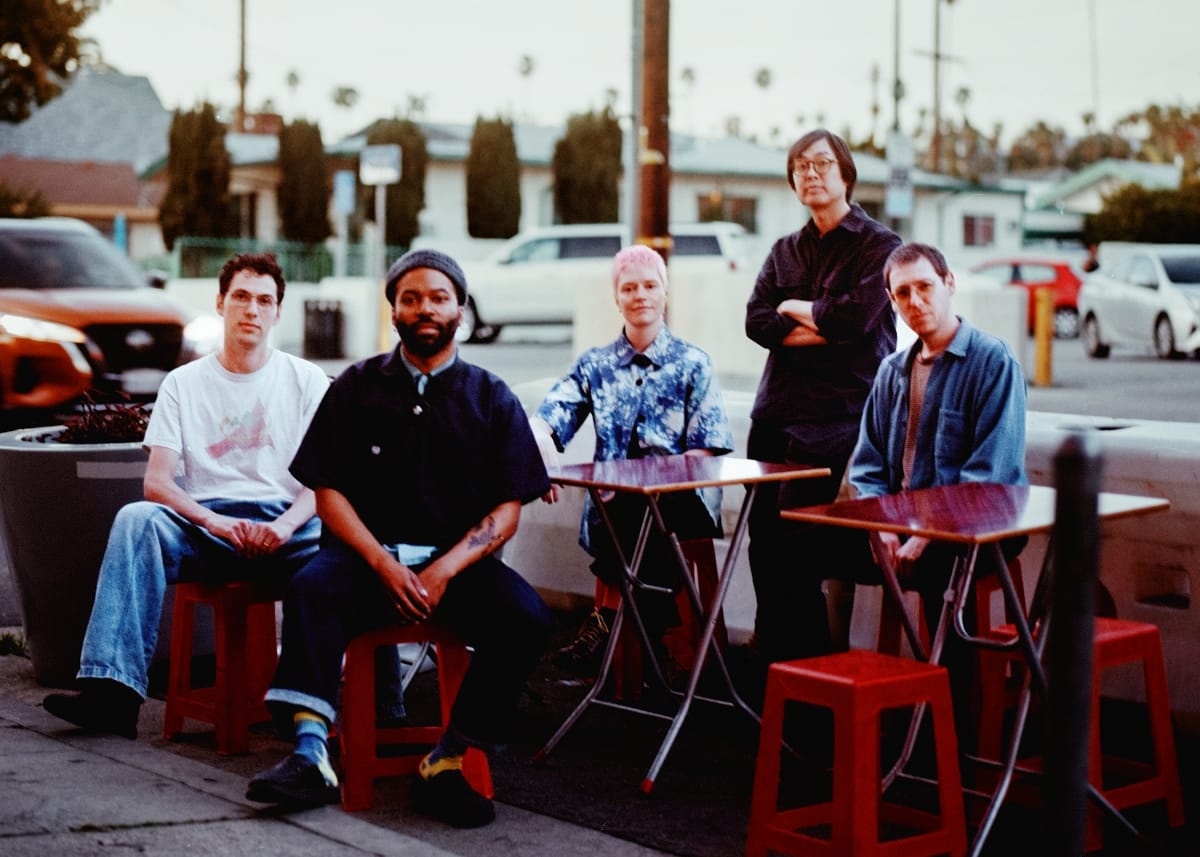
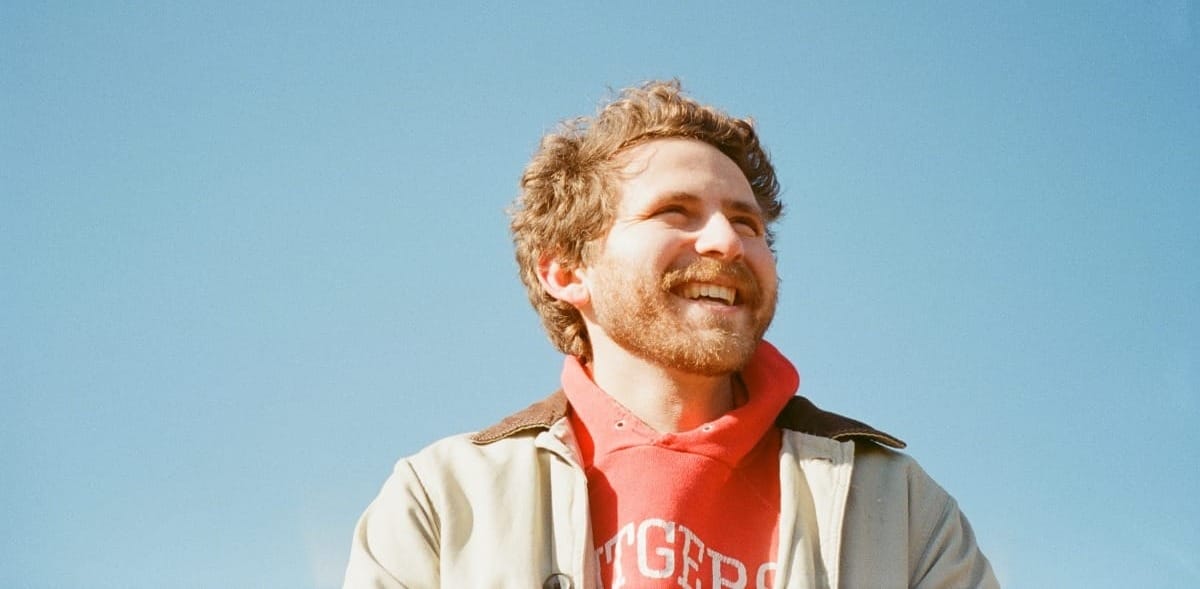

Comments